/topics/climate-and-weather
Climate and Weather
Conference against warming the globe 2011, Tamil Nadu, July 22 – 24, 2011, Madurai
Posted on 28 Jun, 2011 05:46 PMVenue: Thamukkam Ground, Madurai, Tamil Nadu
Topics:
- Impact of warming the globe–Scientific and social background
- Politics of global warming
- Interconnection between present development model and warming the globe/deteriorating climate
- Towards alternative development, initiating nature-friendly and human-friendly measures
Release of the latest issue of The Hindu's annual publication - Survey of Indian Agriculture 2010
Posted on 27 Jun, 2011 12:41 PM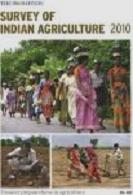 The survey aims to cover major crops and suggestions to farmers on how to take preventive steps to avoid yield loss. There will also be a special article on improvement in living conditions of the rural people.
The survey aims to cover major crops and suggestions to farmers on how to take preventive steps to avoid yield loss. There will also be a special article on improvement in living conditions of the rural people.
Contents
Section-1
Overview:
Enhancing the disaster resilience of agriculture
Prof. M.S. Swaminathan
Drought:
Preparedness to face drought challenges
Dr. V. Rajagopal
Impacts of climate change on growth and yield of rice and wheat in the Upper Ganga Basin – A study by Indian Agricultural Research Institute
Posted on 26 Jun, 2011 01:51 PM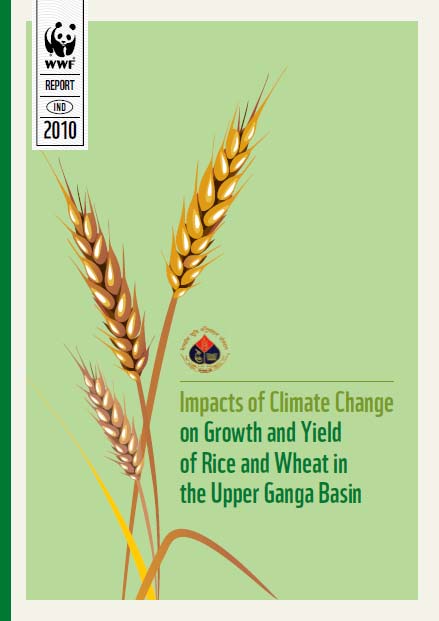 This report presents the results based on climate change scenarios and identifies potential adaptation strategies. The study is part of the ‘Climate Change Impacts on Freshwater Ecosystems in the Himalayas’ (CCIFEH) project, a joint initiative of WWF-India and WWF-Nepal, supported by WWF-Netherlands and aims to study and understand climate change impacts on freshwater ecosystems, livelihoods and the economy.
This report presents the results based on climate change scenarios and identifies potential adaptation strategies. The study is part of the ‘Climate Change Impacts on Freshwater Ecosystems in the Himalayas’ (CCIFEH) project, a joint initiative of WWF-India and WWF-Nepal, supported by WWF-Netherlands and aims to study and understand climate change impacts on freshwater ecosystems, livelihoods and the economy.
Change in climate conditions and the frequency of natural disasters in recent times has made it imperative to find lasting adaptation solutions for the agriculture sector. Given that almost 60 per cent of the country’s population relies on this sector for its livelihood and that it contributes approximately 15.7 per cent of India’s GDP, an analysis of changes which could impact crop yields and subsequently lead to an instable food security scenario is necessary.
A record of lake outburst in the Indus valley of Ladakh Himalaya: A paper in Current Science
Posted on 23 Jun, 2011 04:45 PMInterdependence of glacial fluctuations to hydrometeorology and sediment transfer in the connected river basins is well recognized in the Himalayan region. Considering the increased rates of glacial recession during past few decades, possibility of creating new lake basins by glacial melt and damming of rivers followed by lake outbursts and related flash floods is likely to increase.
Food in focus' - National video competition of Indian Youth Climate Network – Apply by July 31, 2011
Posted on 23 Jun, 2011 11:59 AMThe Indian Youth Climate Network (IYCN) is a network of young people in 18 states uniting Indian youth and youth oriented organizations who are concerned about climate change and environment issues. IYCN members work to generate awareness about and establish consensus on what role India should play in the global debate of climate change, and how it should address its domestic issues.
Urban floods in Bangalore and Chennai – Risk management challenges and lessons for sustainable urban ecology – A paper in Current Science
Posted on 22 Jun, 2011 10:23 PM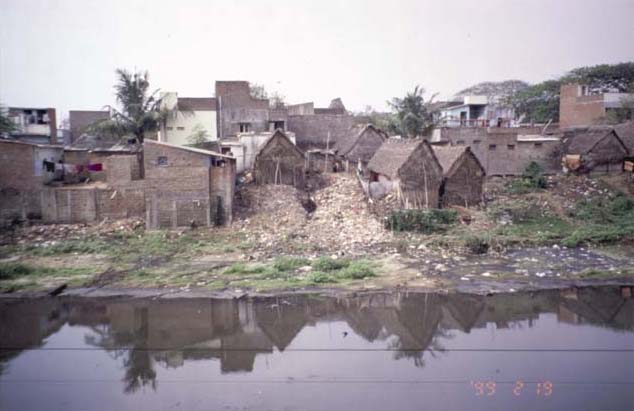 Two important metro cities of India, viz. Bangalore and Chennai are discussed. The aim of the study was to understand the problems of increasing flooding incidences in urban areas and related contexts of urban development and ecological issues. Data of secondary origin have been collected and interpreted in the context of flood risks and urban management. The paper also conveys wider issues and lessons for flood challenges in Indian cities and towns.
Two important metro cities of India, viz. Bangalore and Chennai are discussed. The aim of the study was to understand the problems of increasing flooding incidences in urban areas and related contexts of urban development and ecological issues. Data of secondary origin have been collected and interpreted in the context of flood risks and urban management. The paper also conveys wider issues and lessons for flood challenges in Indian cities and towns.
Recent landslides in Uttarakhand - Nature’s fury or human folly – A paper in Current Science
Posted on 21 Jun, 2011 10:22 PM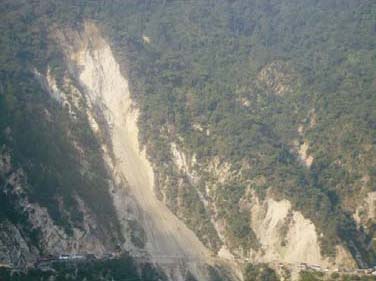 However, increasing anthropogenic intervention in the recent times appears to be contributing to terrain instability in addition to natural factors, as observed by increasing frequency and magnitude of landslides since 1970.
However, increasing anthropogenic intervention in the recent times appears to be contributing to terrain instability in addition to natural factors, as observed by increasing frequency and magnitude of landslides since 1970.
During August and September 2010, Uttarakhand Himalaya witnessed large-scale slope destabilization, particularly along the roads where widening work was in progress leading to huge damage. The cause of regional-scale landslides has been attributed to exceptionally high rainfall in the region during September. When the average rainfall for the month of August and September from 2000 to 2009 is compared with rainfall data of the same period of 2010, it was found that in September 2010, 336 per cent higher rainfall was received by the area. However, the question that arises is: was it unusual rainfall-induced calamity or a result of human intervention?
Applications invited for CCMP Media Fellowships 2011 to the UN-COP17 climate summit at Durban - Apply by June 30, 2011
Posted on 21 Jun, 2011 04:08 PMThe Climate Change Media Partnership (CCMP) supports developing world journalism and perspectives from the heart of the international climate negotiations. The CCMP encourages public debate and scrutiny on climate change issues in the media at the local, national and international levels.
CCMP is proud to announce the launch of a fellowship programme that will send journalists to the United Nations Climate Change Conference in Durban (COP17)to be held during November 28 - December 9, 2011 .
Understanding the local controls of glacial retreat from the Baspa valley in Himachal Pradesh – A paper in Current Science
Posted on 21 Jun, 2011 03:01 PMIt explores the understanding of the local controls on the retreat of glaciers of the Baspa valley in Himachal Pradesh. The geomorphic records mapped are accumulation zone, exposed ablation zone, moraine-covered ablation zone, snout, deglaciated valley, lateral moraine, medial moraine, terminal moraine and hanging glacier.
Water governance guidelines for practitioners - Sahjeevan's experiences in decentralised drinking water management
Posted on 20 Jun, 2011 08:50 PM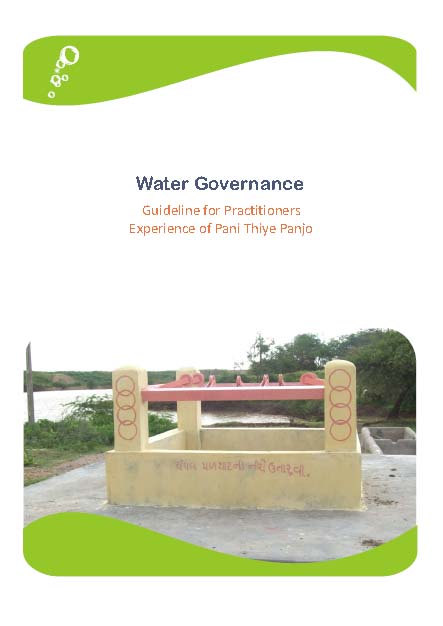 This report is based on the experience of women’s collectives promoted by Sahjeevan and of several member organizations of Abhiyan on local water governance, in particular on the demonstrated models of decentralized drinking water that they have taken up in several villages.
This report is based on the experience of women’s collectives promoted by Sahjeevan and of several member organizations of Abhiyan on local water governance, in particular on the demonstrated models of decentralized drinking water that they have taken up in several villages.
Water has been the central theme for development in Kutch. In the last two decades, a scaling up process of decentralized drinking water, popularly known as Pani Thiye Panjo, has been initiated in around hundred villages of Abdasa taluka in Kutch district of Gujarat focusing on development of local drinking water sources, their strengthening and building capacities of communities for maintenance and management of the systems to develop drinking water security at the village level.
The concept of Pani Thiye Panjo, has been well accepted as Abdasa model, which besides providing drinking water security, initiated policy dialogues at the local level on issues such as protection of groundwater, pricing mechanism of water (local vis-à-vis external sources), role of Panchayati Raj Institutions in water governance, role of local youth in developing their technical capacities and development of social capital in management of drinking water systems.





